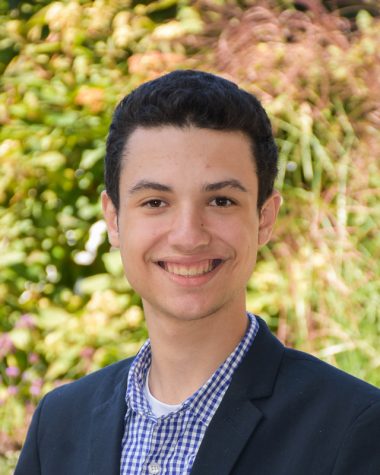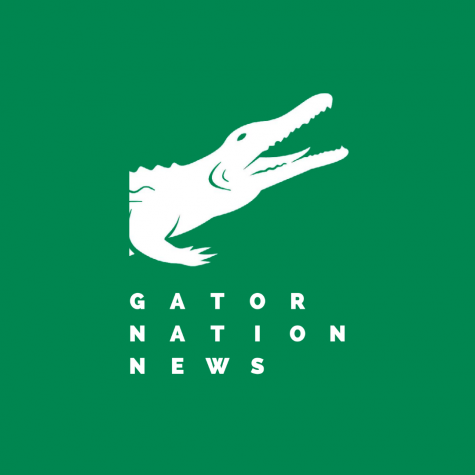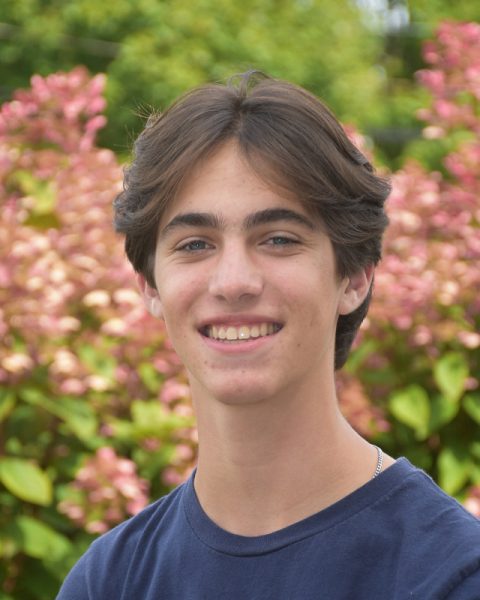The Gator sat down with Associate Director of College Counseling and Director of Upper School Leadership Programs Dan Birdsall. Along with his role as a college counselor, Birdsall also leads the peer-mentorship program Gator Aides.
What is your favorite thing about the School so far?
There are a lot of things that I like. I would say that the thing that has most struck me since I’ve been here is that people seem to be focused on being good to each other which is comforting and appealing, especially as a new person in the community. I have noticed students taking care of each other, being interested in each other, welcoming new students whether they are transfer students or new ninth-grade students. I have seen it in the faculty as well.
There have been a lot of ways in which people need to support each other. Faculty among faculty, students among students, faculty and students interacting, and it’s really nice to be a part of a community where people genuinely care about each other.
What are some of your hobbies outside of school?
I like all racquet sports, I play a little squash as well, but I’m a big tennis player who plays regularly. I am in an ongoing battle to try to learn guitar a bit. By ongoing, I mean it’s almost been 20 years at this point. Still not very good, but I enjoy noodling around on the guitar when I have a chance. And otherwise, a lot of my time is taken up playing with our son, we have a three-year old. I don’t know if that counts as a hobby, but it does count as something to which I dedicate a lot of time to, and that’s a lot of fun too, just chasing him.
What do you hope students take away from both college counseling?
On the college counseling side, college is a match to be made, not a prize to be won. I think that is exactly the right attitude to have about the college search in general, but especially the college search in the United States, when there are so, so, so many options and it can just feel overwhelming, ‘where do I even start, there are so many schools?’
I think culturally, we have a lot of things that channel people toward thinking there is a capital ‘B’ best school out there. I am a strong believer in the fact that there is no such thing that is objectively best school. I think there are, for many people, several dozen schools that can be the right fit. Fit can mean a lot of different things for a lot of different people. I think that as much as students can feel like they are focusing not on ‘where is the best school I can go to,’ but ‘where is the best fit for me?’, that’s what I hope people can take away from the college counseling process.
What do you hope students take away from the various leadership positions you offer?
I think both [Gator Aid mentors program and the Leadership Institute] of those are opportunities for students to start getting a taste of real leadership positions. Whether it’s serving as a role models, but also having some experiences managing people, running meetings, directing conversations, leading by example.
A lot of these things come up repeatedly in a lot of different professional settings, regardless of what your particular occupation is. There are certain things that everyone needs to know how to do to advance professionally in a lot of fields, and a lot of them relate to how we present ourselves to others, how we interact interpersonally, how we listen to others.
The Leadership Institute is going to to get into some of the ways we can build those skillsets. One thing that is important to understand about leadership, there are some things that some people seem to have inherent abilities around, but a lot of qualities that we think of traditional leadership qualities can be learned, can be improved and practiced upon. My hope is that the Leadership Institute will offer students some early experiences where they can think in those terms.
Editor’s Note: Responses have been edited for clarity and length.
























































